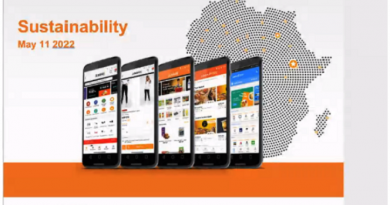Higher Number Of Package Delivery Shows Increase In E-commerce Adoption
When Africa’s e-commerce market leader, Jumia released its 2021 Q2 result, one of the interesting revelations was the upward trend of orders on the platform. The e-tailing platform said “Orders reached 7.6 million, up 13% year-over-year.” This, the report said, was the fastest volume growth of the past five numbers of quarterly orders, up almost 60% year-over-year and accounting for 22% of total orders.
As the orders increase, it rubs off on package delivery in the logistics arm of the sector. The latest report also showed a record 1.3 million packages delivered in the second quarter of 2021 compared to half a million packages in the full year 2020. The foregoing serve as pointers to the growing adoption of e-commerce on the African continent. Even the skeptics of the viability of e-commerce service in Nigeria must have at one time or the other benefited from the services in past years.
Interestingly, one of such staunch doubters of online retail services in Nigeria currently owns a logistics hub that is thriving on the wings of its partnership with Jumia. He is not only smiling to the bank, his company is also creating employment opportunities. “I was one of those who initially felt that e-commerce can never thrive in Nigeria. but as of today, the numbers are showing that things are different,” said Segun Babs, Founder of Fairy Trips Limited.
Babs said his personal business experience shows a growing e-commerce trend in the country. In July, Fairy Trips delivered 14,000 packages. This was coming from a period of 40 packages that went even down to 14 packages at the early stage of the business. According to him, e-commerce gained more traction during the Covid-19 lockdown periods of 2020 and the culture is still being sustained in the emerging post Covid-19 era. “These numbers show the increasing rate of adoption of e-commerce space in Nigeria. I can’t really say because I don’t have the data, but I can say it’s either people are buying more or embracing the ecommerce space more.
Another thing to consider is that by the time Covid came last year, we had a lot of orders coming and they were everyday household items; groceries and others. The people who were isolated, we were giving them packages, sending them food and things to eat and other everyday items. It shows that there is a big adoption and it can only get better,” he said.
The Fairy Trips boss is also looking forward to a business boom as the year runs out with festive sales activities. He said “If we had 14,000 packages for the month of July, I am waiting to see what we would do in November-December when there’s a tier one event coming up. All these things show that e-commerce is here to stay and Jumia is a preferred partner to go with.”
For Babs, his investment in the business is yielding profits. E-commerce is gaining more ground on the continent, and he’s reaching out to friends and family to join the moving train, invest and make a decent living from the growing market. “Am I reaping the effort I have put into the company? definitely yes. Now I have family members, friends employed in the business. People that came for help and I ask them to join the 3PL to do deliveries and make money for themselves. I have friends I told to come sign up, have a hub, become a partner and make a decent living off the whole business. So for me, e-commerce is here to stay. Kudos to Jumia, they’ve done a really fantastic job.”
The fact that e-commerce is becoming a part of daily life in Nigeria is becoming glaring to all. Even if you aren’t yet on the train, you can see and feel its movement around you. The growth is reflected in the numbers of activities, and more importantly in the first hand testimonials of customers and partners who benefit from the impact of the services.




